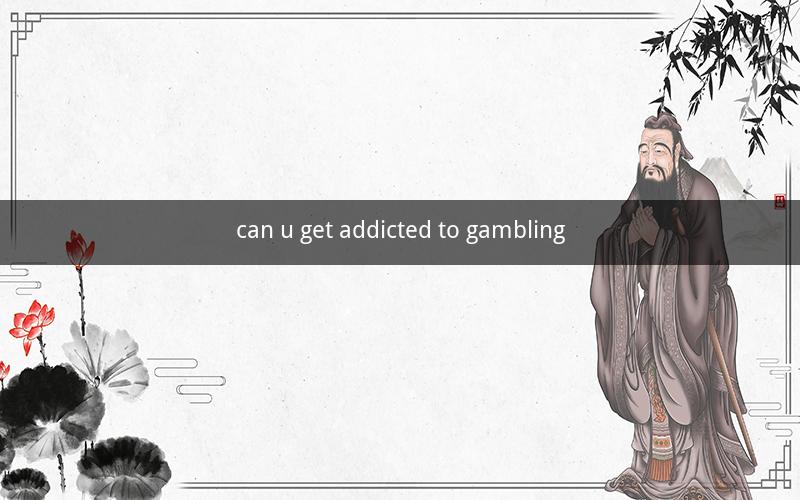
Table of Contents
1. Understanding Gambling Addiction
2. Factors Contributing to Gambling Addiction
3. Signs and Symptoms of Gambling Addiction
4. The Psychological Effects of Gambling Addiction
5. The Social and Financial Consequences
6. Treatment and Support for Gambling Addiction
7. Preventing Gambling Addiction
8. The Role of Technology in Gambling Addiction
9. Case Studies: Real-Life Experiences
10. Conclusion
1. Understanding Gambling Addiction
Gambling addiction, also known as problem gambling, is a disorder characterized by the inability to control the urge to gamble despite the negative consequences. It is a form of impulse control disorder that can affect individuals of all ages, backgrounds, and socioeconomic statuses.
2. Factors Contributing to Gambling Addiction
Several factors can contribute to the development of gambling addiction. These include:
- Genetic predisposition
- Personality traits such as impulsivity and thrill-seeking behavior
- Environmental factors, such as easy access to gambling venues and exposure to gambling advertisements
- Mental health issues, such as depression, anxiety, and substance abuse disorders
3. Signs and Symptoms of Gambling Addiction
Identifying gambling addiction can be challenging, as it often develops gradually. Common signs and symptoms include:
- Preoccupation with gambling, which may lead to neglecting personal, professional, and social responsibilities
- Increasing the amount of money or time spent on gambling
- Feeling restless or irritable when attempting to cut down or stop gambling
- Repeatedly chasing losses
- Lying to family, friends, or therapists about gambling activities
- Risking significant relationships, jobs, or financial stability to gamble
4. The Psychological Effects of Gambling Addiction
Gambling addiction can have profound psychological effects, including:
- Depression and anxiety
- Guilt and shame
- Suicidal thoughts
- Relationship problems
- Reduced self-esteem
5. The Social and Financial Consequences
The social and financial consequences of gambling addiction can be devastating. These include:
- Financial ruin
- Legal problems
- Marital and family conflicts
- Loss of employment
- Social isolation
6. Treatment and Support for Gambling Addiction
Treatment for gambling addiction typically involves a combination of therapy, support groups, and lifestyle changes. Common treatment approaches include:
- Cognitive-behavioral therapy (CBT)
- Contingency management
- Family therapy
- Support groups, such as Gamblers Anonymous
7. Preventing Gambling Addiction
Preventing gambling addiction involves:
- Limiting exposure to gambling opportunities
- Avoiding risky behaviors, such as gambling when feeling stressed or emotional
- Seeking help if there is a tendency to develop gambling-related problems
8. The Role of Technology in Gambling Addiction
Technology has made gambling more accessible than ever, contributing to the rise in gambling addiction cases. Some ways technology impacts gambling addiction include:
- Online gambling platforms
- Mobile apps that enable gambling on the go
- Social media and advertising that promote gambling
9. Case Studies: Real-Life Experiences
Case Study 1: John's Journey
John, a 35-year-old software engineer, developed a gambling addiction after losing his job. He turned to online poker as a way to cope with his financial worries and soon found himself spending hours playing, neglecting his responsibilities, and spiraling into debt.
Case Study 2: Sarah's Struggle
Sarah, a 28-year-old graphic designer, became addicted to slots after visiting a casino with friends. Despite the negative consequences, she continued to gamble, leading to strained relationships and financial turmoil.
10. Conclusion
Gambling addiction is a serious disorder that can have profound effects on an individual's life. Understanding the factors contributing to addiction, recognizing the signs and symptoms, and seeking appropriate treatment and support are crucial in overcoming this challenge.
Questions and Answers
1. Q: Can gambling addiction affect anyone?
A: Yes, gambling addiction can affect anyone, regardless of age, gender, or socioeconomic status.
2. Q: What is the most common treatment for gambling addiction?
A: Cognitive-behavioral therapy (CBT) is often considered the most effective treatment for gambling addiction.
3. Q: Can gambling addiction be cured?
A: While there is no cure for gambling addiction, it can be effectively managed with treatment and support.
4. Q: Is there a genetic component to gambling addiction?
A: Yes, research suggests that there is a genetic component to gambling addiction, with some individuals being more susceptible to developing the disorder.
5. Q: Can technology contribute to gambling addiction?
A: Yes, technology can contribute to gambling addiction by making it more accessible and facilitating constant exposure to gambling opportunities.
6. Q: Are there any support groups for individuals struggling with gambling addiction?
A: Yes, there are several support groups available, such as Gamblers Anonymous, which provide a supportive environment for individuals to share their experiences and receive guidance.
7. Q: Can a person recover from gambling addiction on their own?
A: While some individuals may recover on their own, seeking professional help and joining support groups can significantly improve the chances of recovery.
8. Q: How can someone recognize if they have a gambling addiction?
A: Signs of gambling addiction include preoccupation with gambling, increasing the amount of time and money spent on gambling, and lying about gambling activities.
9. Q: Can gambling addiction lead to financial ruin?
A: Yes, gambling addiction can lead to significant financial problems, including debt and bankruptcy.
10. Q: Is there a difference between problem gambling and gambling addiction?
A: Yes, problem gambling is a broader term that encompasses both mild and severe forms of gambling-related problems, while gambling addiction refers to the most severe form of problem gambling.